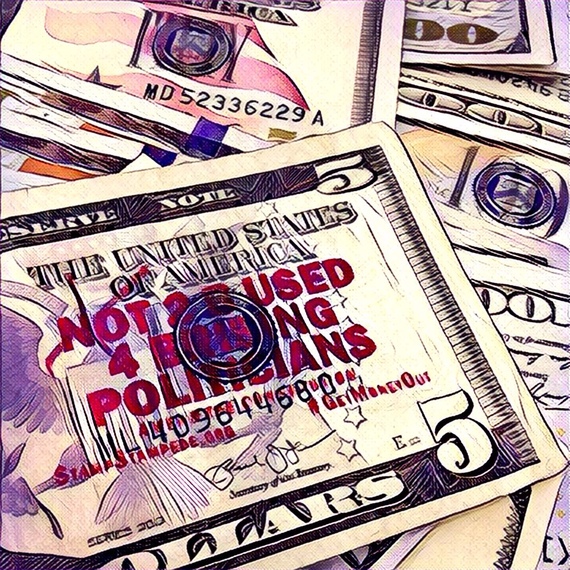
Credit: Damian Gadal via Flickr Creative Commons
By Thomas Kennedy
Miami Dade County has for too long been a place where money means political influence and this can be seen in the daily lives of people who make up this vibrant community. Developers have pushed out working class people as traditional Miami neighborhoods gentrify and rising rent prices make the cost of living unaffordable. It is no wonder that voter apathy in the county is prevalent in a community where most residents don't see their elected officials working for them.
A few months ago a coalition of progressive organizations in South Florida organized a titanic grassroots effort to dismantle this quid pro quo system of politics that has become the norm in Miami-Dade. Community members and activists collected more than 127,000 petitions, more than half required to put a question on the November ballot, to reform campaign financing in Dade County.
Unfortunately, the County Commission has set every bureaucratic roadblock possible in what seems to be an effort to derail this initiative calling for greater transparency and accountability in Dade County.
This election year, we have seen high-profile calls for more accountability in the way money influences politics. Former presidential candidate Bernie Sanders made this one of his flagship campaign issues. Democratic presidential nominee Hillary Clinton has promised to push a constitutional amendment to overturn Citizens United, a 2010 Supreme Court ruling which allowed unlimited corporate and union spending in elections.
In Southern Florida, thousands of voters are taking these appeals to curb money in politics to heart. But it is disturbing to see how elected officials are trying to silence them in response.
The language of the Miami-Dade initiative would ban contributions by county contractors and close loopholes used by lobbyists to circumvent campaign contribution laws. The current limit for campaign contributions stands at $1000, which benefits donors with deep pockets. The petition called for a cap of $250 as well as updating the small donor fund matching program to give working class folks more ability to take part in donating to candidates.
The efforts of the advocacy groups pushing the petition drive were derailed earlier this month when the commissioners did not authorize the validity of the signatures, even though the advocates followed the law. The commissioners had schedule a special meeting to approve the signatures, but could not reach a quorum when a commissioner did not attend because of a medical issue. The county is stymieing efforts to find out what happened behind the scenes before the vote by attempting to charge $22,000 for public records of correspondence among local elected officials related to the vote.
Three weeks of intense media and community pressure followed the vote, including a protest by about 200 community members at the County Commissioners' and Mayor's Offices, which forced them to hold another meeting. The commissioners voted to allow the petitions to be counted. Because of all the delays by local leaders, we missed the deadline for a question on reforming campaign finance to appear on the Aug. 30th ballot. So now we are pushing for the question to appear in the November ballot. The commissioners, though, are claiming that the legal language in the initiative is "deficient" and the county attorney's office will sue to stop the initiative from getting on the ballot.
More than 127,000 voters of Miami Dade County signed this petition demanding a say in how the political process is carried out. These folks are tired of a system that they feel has failed to represent them and instead has sold out to big money interests. In a city where the price of living has working class people being pushed out, it's hardly difficult to see why. Which is why I watched with frustration as the County Commissioners debated the rightness of the issue and complained about their vacations being cut short. I know that campaign finance reform in Dade County faces an uphill battle, but I'm optimistic because the campaign has proved that there is popular will for these reforms. Voters are ready to turn up the pressure in order to achieve these goals.
Most of the Miami Dade County Commissioners are painfully out of touch with working class folks. I suspect many have expressed their opposition with the initiative because they don't want to lose the campaign contributions from their donors who in turn don't want to lose the influence that comes from those contributions. The commissioners, however, would be wise to remember that 127,000 thousand voters is more than the voter turnout in most of their district elections. So the next time they are called to serve the people they were elected to represent, they should answer.
Thomas Kennedy is a writing fellow for the Center for Community Change Action.
